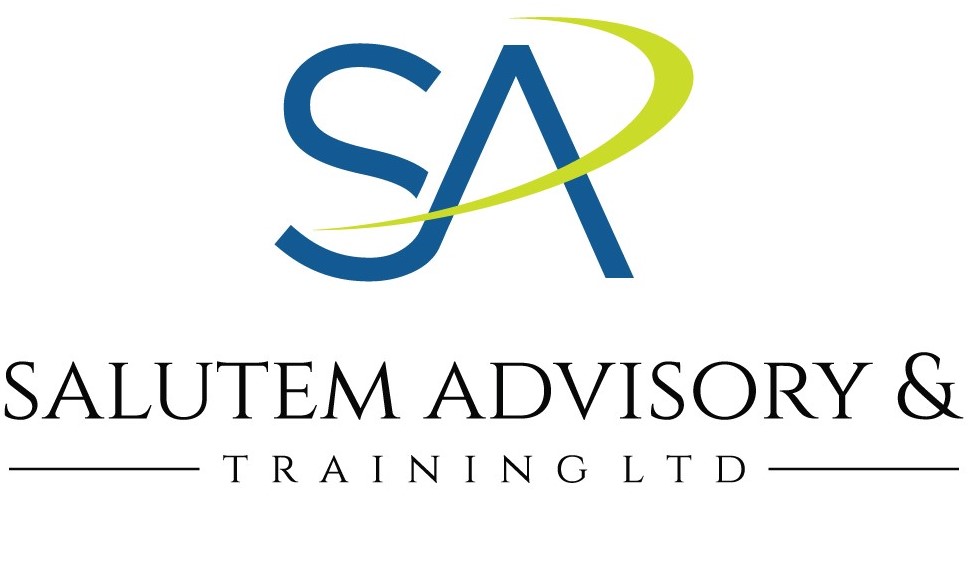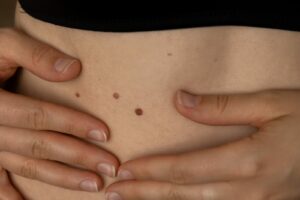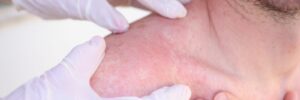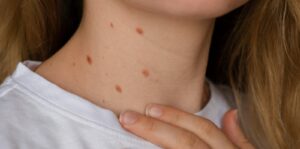
Protecting the Skin of Your Employees: Understanding the Dangers of Solar Radiation
Skin cancer is a prevalent and concerning issue in Ireland, with overexposure to ultraviolet (UV) radiation being the primary cause. While we often associate sunburn with leisurely beach trips and outdoor activities, its impact extends far beyond mere discomfort. Employers, as guardians of their employees’ well-being, bear an essential responsibility to educate their staff on the harmful effects of sunburn. This blog aims to shed light on this often overlooked obligation, emphasising the importance of sun protection and fostering a workplace culture that prioritises employee health and safety. By providing comprehensive education, employers can empower their workforce to make informed choices and protect themselves from the damaging consequences of sunburn.
Early detection and prevention are key to improving outcomes. May is Skin Cancer Awareness Month, making it an ideal time to delve into the effects of solar radiation and the necessary precautions to protect our skin.
The Dangers of Solar Radiation:
Solar radiation, particularly UV radiation, poses a significant threat to our skin. Prolonged and unprotected exposure can lead to various skin-related health issues, including skin cancer, premature ageing, and sunburn.
Skin Cancer:
Excessive exposure to UV radiation is a leading cause of skin cancer, including melanoma, basal cell carcinoma, and squamous cell carcinoma. Detecting and treating skin cancer early is crucial to prevent life-threatening complications. Skin cancer occurs when the DNA inside skin cells becomes damaged, leading to abnormal and uncontrolled cell growth. Individuals in Ireland, particularly those with fair skin that burns easily and tans poorly, are especially susceptible to sun damage and skin cancer. Recognizing the warning signs is crucial, as changes in the skin’s appearance, such as the emergence of new growths, non-healing sores, changing moles, or alterations in existing moles, can indicate the presence of skin cancer.
Premature Ageing:
In addition to skin cancer, UV radiation speeds up the ageing process, resulting in premature wrinkles, fine lines, age spots, and a loss of skin elasticity. These signs of ageing can significantly impact our appearance and self-esteem. Therefore, protecting our skin from UV radiation not only reduces the risk of skin cancer but also helps maintain a youthful and healthy complexion.
Sunburn:
One of the most immediate effects of overexposure to the sun is sunburn. Sunburn occurs when the skin gets damaged by UV radiation, leading to redness, pain, blistering, and peeling. It is not only uncomfortable but also increases the risk of developing skin cancer. Sunburn can occur even on cloudy days or when engaging in outdoor activities such as swimming or skiing, where the reflected UV radiation can intensify the exposure.
Prevention and Protection:
Taking proactive measures to protect our skin from the harmful effects of solar radiation is vital for maintaining skin health. Here are some essential precautions to consider.
Sunscreen:
Applying a broad-spectrum sunscreen with a high sun protection factor (SPF) to exposed skin areas, including the face, neck, arms, and legs, is crucial. Sunscreen forms a protective barrier on the skin, absorbing and reflecting UV radiation. It should be reapplied every two hours, or more frequently if sweating or swimming.
Seek Shade:
Limiting direct sun exposure, especially during peak UV hours (typically between 10 a.m. and 4 p.m.), is recommended. Seeking shade under umbrellas, trees, or other shelters helps reduce the intensity of UV radiation and provides a break from direct sunlight.
Protective Clothing:
Wearing loose-fitting, lightweight clothing that covers most of your skin can provide additional protection. Opt for tightly woven fabrics that block UV rays and consider adding a wide-brimmed hat and UV-blocking sunglasses for further shielding.
Avoid Tanning Beds:
Tanning beds emit UV radiation, which can be just as harmful as the sun. To reduce your risk of skin cancer, it is best to avoid using tanning beds altogether. Embracing natural skin tones and adopting a sun-safe lifestyle is a healthier choice.
Regular Skin Examinations:
Performing self-examinations of your skin is essential for early detection of any changes or abnormalities. Checking for new moles, growths, or unusual spots and monitoring changes in existing moles can help identify potential signs of skin cancer. If you notice anything suspicious, consult a dermatologist for a professional evaluation.
Stay Hydrated:
Proper hydration is essential for maintaining healthy skin. Drinking plenty of water, especially when spending extended periods outdoors, helps keep the skin hydrated and supports overall skin health.
Educate Others:
Raising awareness about the importance of sun protection and skin cancer prevention is crucial. Share information with your family, friends, and community to encourage them to adopt sun-safe practices. Together, we can create a sun-aware culture that prioritises skin health.
Skin Cancer Awareness Month serves as a timely reminder to prioritise our skin health and protect ourselves from the harmful effects of solar radiation. The workplace is no different. By understanding the risks and implementing preventive measures, such as using sunscreen, seeking shade, wearing protective clothing, avoiding tanning beds, conducting regular skin examinations, staying hydrated, and educating others, we can reduce the incidence of skin cancer and enjoy the outdoors safely.
Let us all commit to raising awareness and taking proactive steps to safeguard our skin, not only during this month but throughout the year.
Remember, your skin deserves protection and care. Embrace the beauty of the sun responsibly and make sun-safe choices for a lifetime of healthy skin.
If you need someone to prioritise the Health and Wellbeing of your Staff, give the team at Salutem a call to discuss our retained health and safety services for Irish Businesses.





